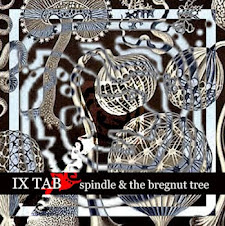Another remix of a Freq review....
This gives me the gargles. It
reminds me a little of the tone behind
James Ferraro’s Far Side Virtual (it doesn’t sound much like it at all) in that
it’s like Roman has found himself unable to distance himself from the music
he’s riffing on. This seems respectable, seems right, seems like these aural artefacts (I’m talking about library
music, mostly) ought to have a little bit more respect in themselves, rather than simply as cultural signifiers or
soundpools for discerning (pillaging) Hauntological hordes and wraiths but..
then we’re faced with the slightly uncomfortable question: do these sounds by themselves really offer us that much?
This album is great in parts and
then in parts it’s (mere) library music. Maybe the ‘mere’ is snobbery; maybe
there’s gems to be found in unadulterated library music (“after all, Tod
Dockstader…” etc) but if there are gems
in library music per se, why listen to something that isn’t library music and is intended (perhaps) for something quite
different? This is an album, this
isn’t (I think) simply intended as something to be used, as something by
definition incidental.
To some extent (actually, to the whole extent) this crosses over with my feelings re: the redevelopment of the BBC Radiophonic Workshop in that it seems doomed to failure because the new artists will be continually looking over their shoulder expecting their incidental music to be acclaimed as something other than incidental music and thus will make music that isn't incidental per se, is focused on listening rather than helping the visuals elaborate, is readied for the CD boxset rather than the programme itself...
I mean, I'm a long sugffering Doctor Who fanboy and I have several of the BBC soundtrack cassettes from the 70s/80s and the music doesn't sound at all like music, isn't at all structured in a way that makes sense in the kitchen... it makes sense only when I add in the visuals (the emerging Sea Devils, the flutter of a Sontaran landing) and then it gives that sense that some people seem to hear without having the original programme in mind...
I say it wasn't intended as music but that is a speaker, right?
I could be being snotty here: assuming that the music doesn't stand on its own, doesn't have power in itself without the heavy load of culture and memory (I was there; you can't hear it like I can hear it) but... it really doesn't have that power. Someone like Ekoplekz is much loved because he adds a musical sensibility (albeit via Cabaret Voltaire, Robert Rental et al) to a set of sounds not usually associated with music. He adds a skewed, er, pop (he'll hate me saying this) mentality that helps us along, that helps us treat the music qua music.
I'm digressing. I like this album. I like Sone Institute. He's doing something unusually tangled; introverted and outro-orientated. There’s undoubtedly a lot of
skill here and a lot of real playing (and often playfulness) and many of the tracks, especially in the
latter half of the album, find their own bouncing frequency but then there’s
often a scything, cheesy guitar /organ sound to derail you and send you back to
thinking: what if this were library
music? Could we tell that it wasn’t? For this reason, the tracks work better
alongside words; the spoken/sung passages help to clarify, even if they in fact
lend a gauzy surrealism that matches the beautiful sleeve. I like the words.
They make sense of this album and elevate it.






















1 comment:
hate u. lol.
Post a Comment